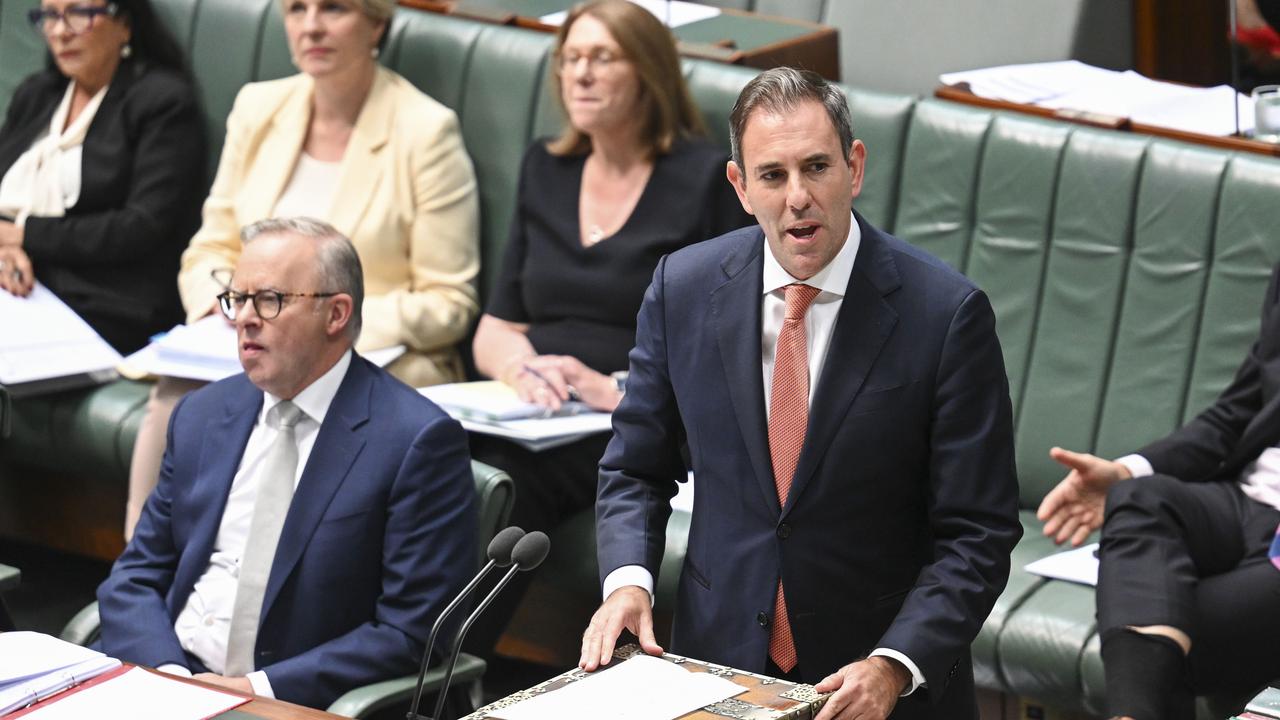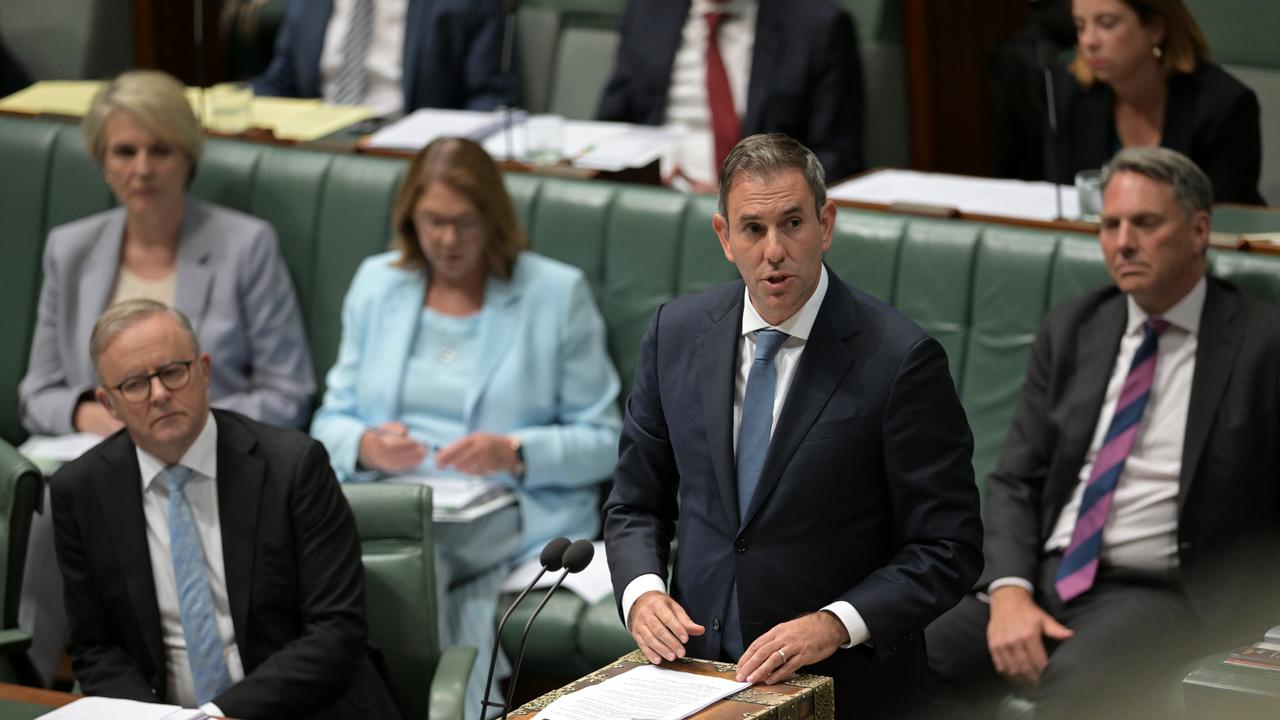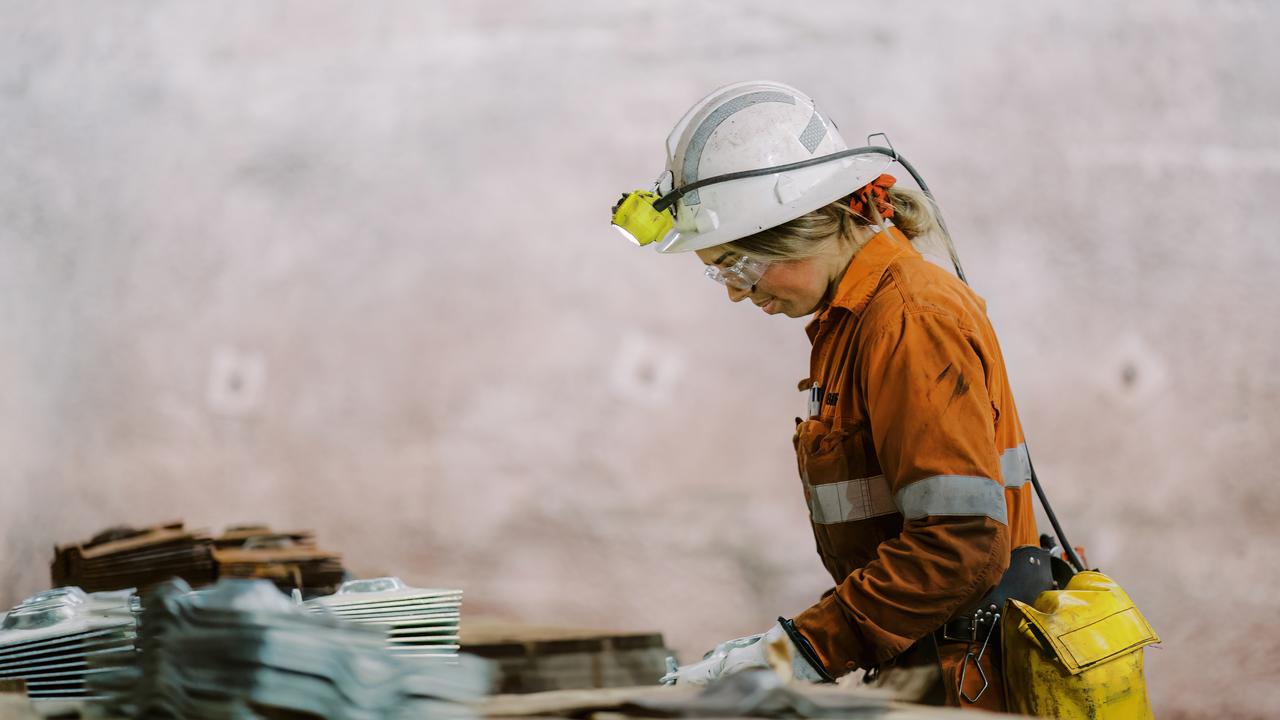Interesting article in today's Oz that mentions ARU.Embracing an Australian form of socialism risks curbing profits
- 10:40AM MARCH 27, 2024
- 157 COMMENTS
Jim Chalmers had been treasurer for just short of nine months when he revealed that the Albanese government would embrace an Australian form of socialism, which the Treasurer called “value based capitalism” and said it would be “uniquely Australian”.
Snippets of that master plan were contained in an article for January’s The Australian. At the time, I described the Chalmers vision as the end of the Keating era. But I did not realise was that “value based capitalism” might also signal the possible curbing of the era of very high profits.
Suddenly, taken in the context of “value capitalism”, Dr Chalmers’ speech last week to a Business Council dinner takes on a new dimension.
Chalmers called on Australian companies to invest and, as I pointed out earlier this week, that left profit-oriented chief executives shaking their heads because to invest in Australia under the new industrial relations rules means sharing management with unions which lifts costs and lowers productivity.
But the CEOs may be underestimating the determination of Anthony Albanese and Chalmers to embrace “value based capitalism”.
The Australian government is rare among global left wing governments because it has strong influence over vast sources of capital, including industry superannuation funds and government bodies like Export Finance Australia.
Over the last decade, Australian corporations have become much more profit orientated, partly driven by pressure from industry superannuation funds and the successful strategies of people like BHP chairman Ken MacKenzie.
Go back a couple of decades and control of BHP’s mining operations was shared with the unions and BHP achieved nothing like recent returns, partly because it did not have the current return on capital disciplines when making investment decisions.
The old BHP tradition was that retiring CEOs were required to leave to their successor more mineral resources than they were handed by their predecessor. It was a totally different success criteria.
Banks, retailers and many other large corporates have gone through a similar “return on capital” disciplines to the delight of shareholders.
Dr Chalmers might not publicly agree but, with the benefit of hindsight, we can now look back on the industrial relations legislation and the consequent restoration of union management influence as a first step in “value capitalism”.
The next step is to encourage companies to invest in this new era, which may involve different investment criteria.
In this context, let’s reflect on some of the quotes from the Chatham House Rule speech that Dr Chalmers has released publicly.
•“The common ingredient in our success – the thing that binds all of this up together – is investment. We are working out how to bring together our plans for a future made in Australia, our prospects in critical minerals, and our co-investment agenda into one piece of work to boost investment in our economy.”
•“We have to decide as a country whether the long-term moderate growth set out in the intergenerational report is acceptable to us. It’s not acceptable to me or to the government that Anthony Albanese leads.”
•“I want to foreshadow with you tonight that how we attract, absorb and deploy investment will be the big question the budget will seek to answer.”
My conclusion from Dr Chalmers’ remarks are that if boards believe private investment returns under the new industrial relations rules don’t stack up, or there is too much risk, the government will co-invest.
We may also see extra investment from industry superannuation funds and as a prelude to that development the industry funds are seeking board representations on a small number of leading companies.
Such appointments may see enterprises squeezed between pressure from the board and joint union management control on the “shop floor”.
On the “value based capitalism” front the government has already set a pattern by pumping $US533m into Arafura’s Nolans rare earths project which is some 135km northwest of Alice Springs.
In this case, industrial relations were not a factor but rather it was seen as an essential national project where the private sector was not prepared to put up the capital because of the current low rare earth prices and the complexity of the project.
It involves an underground mine, a concentrates plant and a number of hydro metallurgical processes including pre-leach precipitation, sulfation, water leach precipitation, dissolution and purification. And there are further treatment plants involved to reach final products.
History tells us these complex projects normally cost more and take longer than first envisaged.
This “value based capitalism” precedent can be applied to many other minerals, agricultural, residential and social projects where private capital is not available to develop.
The biggest single investment project being considered for Australia is the giant BHP South Australian copper development, which includes not only underground mines but treatment plants, refineries and a power station.
Let’s theoretically assume there is an industrial relations agreement on the table that involves management sharing, controversial work practices and perhaps other conditions including “no nuclear”.
Totally theoretically, BHP directors may say that they are not prepared to invest on those terms and will instead expand copper production offshore.
If this project was declared essential for Australia, it is likely that the government would try to arrange some form of co-investment.
Back about 40 years ago Alcoa threatened not to build the Portland aluminium smelter so the ALP Victorian government of the day, while on a borrowing binge, funded half a project. They later sold it.
We are headed into very new territory, but as the above Victorian example shows, we have been there before. The Victorian government at that time ran out of money and voters elected Jeff Kennett and Alan Stockdale to fix up the mess.
- Forums
- ASX - By Stock
- Ann: Commonwealth Government supports Nolans with US$533m package
Interesting article in today's Oz that mentions ARU.Embracing an...
-
-
- There are more pages in this discussion • 74 more messages in this thread...
You’re viewing a single post only. To view the entire thread just sign in or Join Now (FREE)
Featured News
Add ARU (ASX) to my watchlist
 (20min delay) (20min delay)
|
|||||
|
Last
18.0¢ |
Change
0.005(2.86%) |
Mkt cap ! $443.5M | |||
| Open | High | Low | Value | Volume |
| 17.0¢ | 18.0¢ | 17.0¢ | $1.087M | 6.257M |
Buyers (Bids)
| No. | Vol. | Price($) |
|---|---|---|
| 6 | 200375 | 17.0¢ |
Sellers (Offers)
| Price($) | Vol. | No. |
|---|---|---|
| 18.0¢ | 787496 | 25 |
View Market Depth
| No. | Vol. | Price($) |
|---|---|---|
| 4 | 190000 | 0.170 |
| 23 | 1435526 | 0.165 |
| 27 | 1260899 | 0.160 |
| 19 | 1994685 | 0.155 |
| 76 | 2361343 | 0.150 |
| Price($) | Vol. | No. |
|---|---|---|
| 0.180 | 659525 | 23 |
| 0.185 | 1144776 | 16 |
| 0.190 | 700592 | 13 |
| 0.195 | 591483 | 16 |
| 0.200 | 1208740 | 18 |
| Last trade - 16.10pm 04/10/2024 (20 minute delay) ? |
Featured News
| ARU (ASX) Chart |
 Jim Chalmers during Question Time at Parliament House in Canberra. Picture: Martin Ollman/NCA NewsWire
Jim Chalmers during Question Time at Parliament House in Canberra. Picture: Martin Ollman/NCA NewsWire Jim Chalmers speaks during Question Time at Parliament House. Picture: Tracey Nearmy/Getty Images
Jim Chalmers speaks during Question Time at Parliament House. Picture: Tracey Nearmy/Getty Images Employee at BHP's copper operations in South Australia.
Employee at BHP's copper operations in South Australia.









